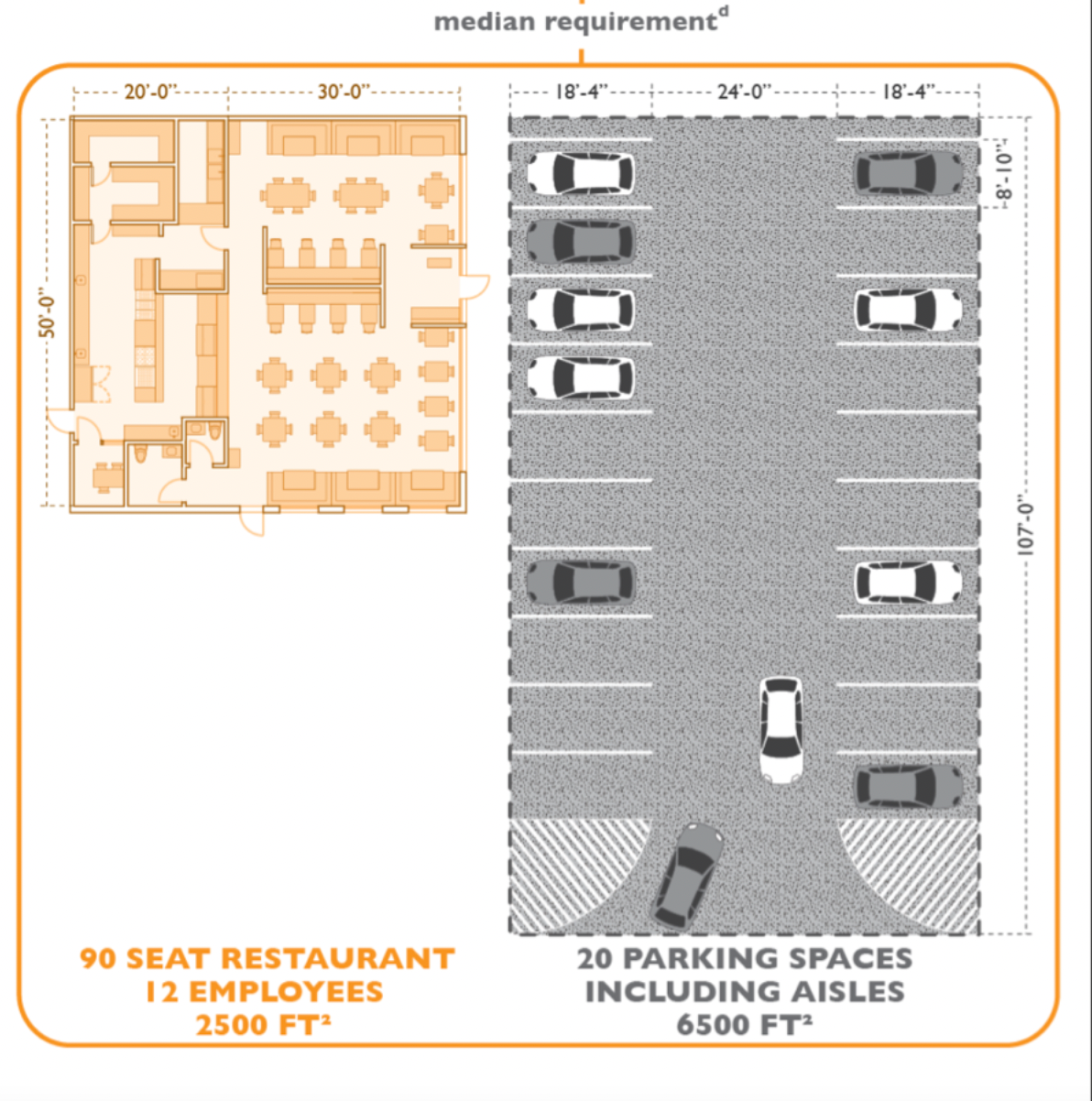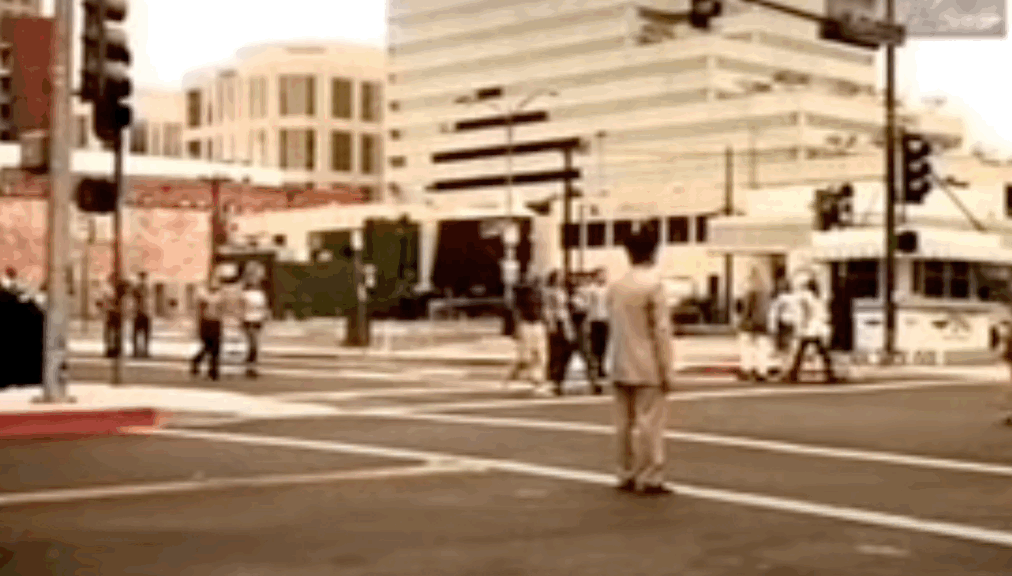The Saturn Commercial That Accidentally Advocated For A Car-Free World
GM tried to sell Saturn Ions and Vues and accidentally showed us how much better life would be without cars.
Listen, I need to put some rumors to bed: I really don't hate cars. It's true, I resent being forced to use a car for every function of my adult life. But there's so much to love about cars. The technological quirks, the meeting of form and function in daily life. The engineering challenges, and the ways that brilliant minds have overcome them. I celebrate the car for what it says about human ingenuity and determination.
What I don't love is how modern American life, and most American cities, are built to prioritize personal vehicles over all other forms of transport. We seem obsessed with keeping this lifestyle going, despite disastrous effects on our individual and global health. Add in the expense of owning and maintaining a vehicle (and the burden that puts on poor people especially), coupled with our crumbling and neglected infrastructure, and it all starts to feel a bit dystopian.
That's why I love this old Saturn commercial, featuring the redesigned L, the Vue crossover, and the final generation of the Ion. It highlights how we live for our cars, rather than for ourselves and each other:
As an enticement to buy a new vehicle, boy, this commercial missed the mark — and I say that as a former Saturn Ion owner. This clip doesn't make me want to buy a Saturn. It doesn't make me want to buy a car at all. It makes me want to shut down streets and build bike lanes. It makes me want to walk in the sun and wave to my neighbors while running around a 15-minute city to get my errands done.
So much car infrastructure eats up space, time and money (that comes out of every taxpayer's pocket) while giving very little in return. City planners look at traffic-choked freeways and add more lanes despite knowing that more lanes only create a bigger traffic problem. It's like buying a bigger belt and thinking it will help you lose gain.
Then there are parking lots, which are a cancer that eat cities alive. Cars spend 95 percent of their time parked, transportation researcher Paul Barter told Fortune. One study showed that out of the top five biggest cities in the U.S., only one — New York City — has more homes than parking spaces. From Fast Company:
In Seattle, there are around 1.6 million parking spaces–more than five for every household in the city. Des Moines, a much smaller city, also has roughly 1.6 million parking spaces, or 19.4 per household. The small town of Jackson, Wyoming, has 27.1 parking spots per household.
A new report calculates, for the first time, exactly how many parking spots are in five cities–New York, Philadelphia, Seattle, Des Moines, and Jackson–and gives a sense of how much money and land is being wasted on car storage. It's data that cities don't have now, because it's hard to gather a comprehensive list of spots–not only the ones on streets but in garages and on private land. The report analyzes satellite data to identify some parking spots, pulls on-street parking statistics from city records, and finds other off-street parking in parcel data. The basic finding: Cities have far more parking spaces than they need.
Just look at this classic illustration of the parking problem from Graphing Parking:

Parking requirements also hurt rent and housing prices, which has skyrocketed along with everything else in recent months. From Reinventing Parking:
Everyone pays the same amount for parking whether she or he walked, rode transit, carpooled, or drove alone, but rarely does anyone see that price itemized on a receipt. As a result, most people are unaware of the heavy financial burden they bear for the sake of parking. The above graphic takes a look at one area where parking adds significantly to a household's expenses: Rent.
[...]
The effect of each parking spot on affordability is significantly higher in urban communities than suburban ones both because the land occupied by parking is more expensive in urban areas and because building structured parking is many times more costly than paving surface lots. This reality affects the ability of lower income households to live in urban areas since parking costs roughly the same to build whether an apartment is luxury grade or modest. An $18,000 spot might not have a noticeable impact on the rent of a $300,000 unit, but it would definitely be noticed by someone renting a $75,000 unit.
It's not just the space that parked cars consume that's a problem. Just a reminder: nearly 43,000 Americans were killed in car crashes in 2021 alone. We have the ability to cut those deaths in half, but choose not to. We have the technology to cut down on particulate pollution from exhaust — some of the most harmful pollution to human lungs — but we just don't. Long commutes are terrible for our physical and mental health, but we just accept commuting as a facet of modern life. All these problems are compounded by the fact that, right now, gas is still over $5 a gallon in much of the country, and prices for new and used cars are skyrocketing.
This isn't to say you shouldn't love cars. If you're reading Jalopnik, you understand the beauty and the pain of automotive obsession. But it seems like our society is set up to encourage something like Stockholm Syndrome when it comes to cars. I just feel like I'd love cars a lot more if I could own one purely for fun, not as a requirement for participation in society. Car ownership on my own terms, not because huge corporate conglomerates created a world where I need one.
